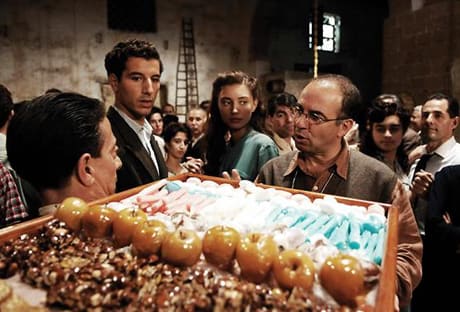Considering that director Giuseppe Tornatore is the man behind such emotionally resonant fare as Cinema Paradiso and The Star Maker, it means something that his latest film only received a theatrical release in a handful of countries throughout Europe. Tornatore's name alone should have generated enough interest to warrant a limited release in North America, especially considering that this is his Amarcord. But despite similarly being a boyhood recounting of the titular childhood village where he was raised, Baaria is not Fellini's Amarcord. In fact, it's not even Zefferelli's Tea with Mussolini. Spanning three generations throughout the life of Peppino Torrenuova (Francesco Scianna), Baaria follows him from idealistic boy through his marriage to the seemingly unobtainable Maanina (Margareth Made) to his eventual failed political career as leader of a Communist party. Even though it is two-and-a-half hours, it races through these plot points with the delicacy and grace of a teenage boy on his first make-out date. Peppino is told that Maanina is meant to marry a man with more money, which is then resolved with a single argument, rapidly transitioning to a wedding scene. Within another few moments, Maanina has suffered a miscarriage, which then cuts to a scene where she's nine months pregnant. Two minutes later, she has four kids. It can be hard to keep up with, or care about, the excessive, often unnecessary plot points crammed into this bloated, unfocused narrative, especially when each sequence is more concerned with awkwardly finding the idiosyncrasy of any given moment than anything emotionally or thematically relevant. In the final 20 minutes, something does emerge from the preceding mess, making a moving emotional argument for believing in the impossible no matter your age, but it doesn't justify the many purposeless characters and legless villains clogging the overall runtime. The "Making Of" included with the DVD features an interview with Tornatore, where he discusses the significance of making a movie about the village where he grew up, but never explains his desultory storytelling approach.
(eOne)Baaria
Giuseppe Tornatore

BY Robert BellPublished Dec 16, 2010